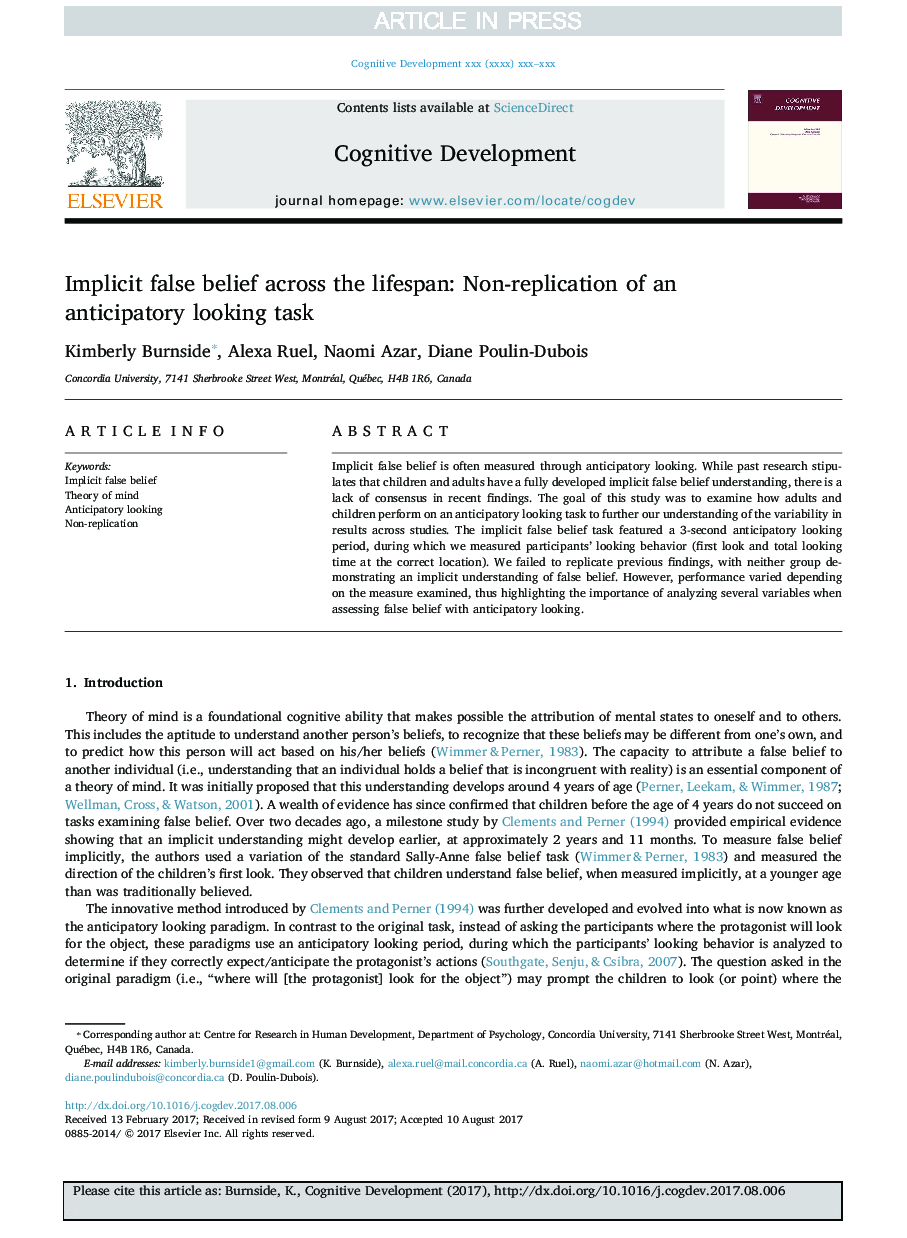| Article ID | Journal | Published Year | Pages | File Type |
|---|---|---|---|---|
| 7272177 | Cognitive Development | 2018 | 8 Pages |
Abstract
Implicit false belief is often measured through anticipatory looking. While past research stipulates that children and adults have a fully developed implicit false belief understanding, there is a lack of consensus in recent findings. The goal of this study was to examine how adults and children perform on an anticipatory looking task to further our understanding of the variability in results across studies. The implicit false belief task featured a 3-second anticipatory looking period, during which we measured participants' looking behavior (first look and total looking time at the correct location). We failed to replicate previous findings, with neither group demonstrating an implicit understanding of false belief. However, performance varied depending on the measure examined, thus highlighting the importance of analyzing several variables when assessing false belief with anticipatory looking.
Keywords
Related Topics
Social Sciences and Humanities
Psychology
Developmental and Educational Psychology
Authors
Kimberly Burnside, Alexa Ruel, Naomi Azar, Diane Poulin-Dubois,
